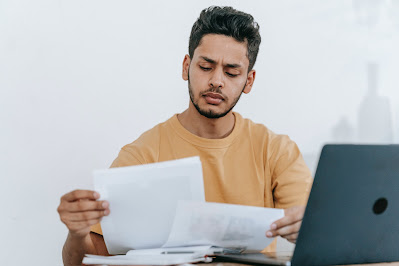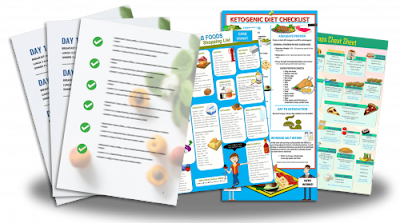Why do you feel sleepy after eating?
- Get link
- X
- Other Apps
Why do you feel sleepy after eating?
This is a phenomenon known as 'postprandial sleepiness '. And although it does not happen to everyone, it is basically a fact that is closely related to the volume of food that the person eats. And also with the type of food you eat at noon.
This situation, among other factors, is induced by copious food intake. This sensation, which we usually call drowsiness, occurs after eating. and this is because with the onset of digestion, the diaphragm rises. That way you breathe more superficially. And the carbon dioxide that can accumulate causes drowsiness. But this feeling can be very pronounced in some people and not at all in others.
Experts estimate that the increase in neurotransmitters that occurs during digestion would also have some influence. When fats and carbohydrates are ingested, 'serotonin' rises, which, being a natural anxiolytic, could favor the predisposition to sleep. Therefore, eating something sweet promotes relaxation that induces sleep.
About 30 minutes after eating, when the digestive process has already begun, the general circulation is restricted. The areas that do not need as much irrigation as the digestive system that is in full activity are less irrigated. That, added to the arrival of serotonin, produces a feeling of laxity. And if the environment is cozy, there is little noise or you are close to nature , it is very possible that sleepiness will occur.
Copious meals induce a general laziness. But the type of food that has been taken also influences. Fats are the main culprits in this situation. And also carbohydrates. And that is simply because they are some of the food groups that give the digestive system the most work.
But the best advice is to avoid overeating. Doctors advise that every time we eat a meal, we do it in such a way that we remain relatively satiated. but never quite. The idea is to stay a little hungry , to avoid giving the digestive system too much work. Avoiding very sweet things and having a stimulating drink, be it coffee or tea, can be effective in combating that feeling. It also helps to drink water.
Drowsiness from overeating is the one to avoid because it can cause you to fall into a heavy and uncomfortable sleep of several hours. But a 15 or 20 minute nap each day isn't just not bad. if not many doctors advise it. since it serves to 'recharge the batteries' and is very healthy.
Why do you feel sleepy after eating?
It is not that everything we eat makes us very sleepy, not all foods have the same effect on our body, and the body does not always react in the same way.
Some foods mean that because of their tryptophan content or because they significantly increase the release of insulin, they are not our allies to overcome sleepiness after eating . Some important ones would be: Rice for having a very high glycemic index, pasta, white bread, and other similar ones, because they make insulin production faster. Oats provide us with tryptophan and vitamin B, making it a food that relaxes the nervous system. Also avoid dairy products, nuts, especially nuts, also bananas and cherries since they increase the level of melatonin. The ultra-processed ones are very caloric and usually also contain many hydrates.
Surely at some point you have asked yourself " why do I get sleepy after eating ?", the best known explanation for people is that, after eating food, the body concentrates a large part of the blood in the stomach, which produces that excessive tiredness and drowsiness.
Currently, there are new data on the cause of sleepiness after eating , and it seems that this has more to do with the hormones that influence the states of sleepiness and alertness, than with the blood supply to the organs in charge of sleep. digestion.
If you normally ask yourself " why do I get sleepy after eating ?", it is probably due to glucose intake since, in the digestion process, it tends to rise and fall rapidly; This increase causes the lateral hypothalamus in the brain to stop having activity and to stop releasing orexin.
Orexin is the hormone in charge of regulating alert and wakefulness processes, if the amount of this decreases due to glucose intake, a feeling of tiredness is produced that at the body level translates into sleep.
This spike in glucose affects people with diabetes more intensely , since the sleep they feel after eating is higher compared to those who do not have this disease; This is because, due to the normal characteristics of their condition, it is difficult for them to process the glucose that circulates in their blood.
To all of us, to a greater or lesser extent and as we have just commented, we get sleepy as soon as we finish eating. What is the cause?
There are different theories about it, which we will talk about next. What does seem clear are the symptoms that one has when we get sleepy after eating.
Can we prevent ourselves from getting sleepy after eating?
It can be somewhat uncomfortable to feel sleepy when we have just eaten , especially if we are away from home. However, getting sleepy after eating is quite common.
If it happens to us, it's a good sign to remind us to stick to smaller, lower-fat meals next time. In this way we will be able to keep the body healthy, active and alert.
If desired, some guidelines can be followed to avoid falling almost unconscious on the couch after eating. We give you some advice.
consume less quantity
Very large meals are very likely to make us sleepy after eating. And during this time of year, binge eating every other day is very common: we usually eat more than we can assimilate and the body notices it.
Copious meals cause increased sleepiness .
On the other hand, when we have made a light meal with a rather liquid texture such as soaps or creams, the sensation is not so evident.
For the diet to be correct and balanced, energy and all the nutrients must be present in it in adequate and sufficient amounts to cover needs and maintain health. Water , although not considered a nutrient, is also vital, as is dietary fiber , another nutritionally important substance.
A proper and balanced diet not only benefits us at bedtime. So if you build balanced meals around a moderate intake of protein and carbohydrates with a small amount of healthy fats, you're less likely to fall victim to post-meal sleepiness.
Importance of physical activity
People who are active generally have a lower risk of degenerative diseases , especially cardiovascular disease, hypertension, stroke or osteoporosis.
In addition, regular physical exercise also produces a greater sense of general well-being. Recent studies have revealed the importance of physical activity in controlling anxiety, stress and improving self-esteem.
It can be very useful to prevent us from falling asleep after eating, increase circulation and stimulate your muscles with a short walk or stretching.
As we have mentioned, any activity can help burn calories, thus helping to improve our body to keep the symptoms of drowsiness after eating at bay.
What to do to sleep well at night and not get sleepy after eating
It is very important to get a good night's sleep and enough rest to avoid drowsiness during the day. Sleep is a physiological process of great importance. While we sleep, the brain reproduces the activity patterns corresponding to learning.
The work of the brain during sleep is the consolidation and reorganization of our memories , something that is essential to consolidate newly acquired skills and knowledge.
Sleep also keeps our immune system healthy and restores energy. Lack of sleep can cause major problems.
In the short term, there is impatience and less ability to concentrate, which leads to less efficiency, and hinders learning and fixing memories. In addition, it can cause creative thinking deficits and language disorders, since the frontal lobe of the brain is affected.
In the long term, insomnia represents a serious health problem: it reduces longevity and can affect the immune system and the nervous system. Likewise, it has been related to the appearance of diabetes, obesity and cardiovascular problems in relation to the increase in ghrelin, a hormone that regulates appetite and, therefore, body weight.
How do we get, therefore, a restful sleep?
Establish a healthy sleep routine :
It is convenient to get up at the same time every day , even on weekends or during vacations.Beds should only be used for sleeping, having sex, or recovering from illness.It is good, to get sleep, keep a regular schedule for meals , medicines, housework and other activities. This will help our internal biological clock to run smoothly.It is interesting to look for rituals that help us relax every night before going to bed. This can include things like a hot bath, making a light dinner, or a few minutes of reading.You have to forget about stress before going to bed .
What we haven't been able to fix until then won't be fixed once we get into bed. The next day is the best option to solve our problems. If it happens to us regularly, it may be good to write down our worries and get these feelings out before going to bed.You should go to bed only when you are sleepy.
And, in the same way, as soon as we are sleepy, we must go to bed and not delay watching television or our favorite series. If, once in bed, we can't fall asleep in 20 minutes, we have to get up. We will do some quiet activity that relaxes us and we will go back to bed as soon as we feel tired again.
Of course, dine lightly
Have a light dinner. It is evident that those people who eat abundant dinners need more time to fall asleep and their sleep is of worse quality than those who eat a controlled amount of food for dinner, so include fruits and vegetables in these dinners.
These contain polyphenols, a substance that manages to promote quality sleep. In addition, it helps to avoid night awakenings, thus causing a greater feeling of rest and a less tendency to sleep during the day.
Other interesting foods to consume are those that contain L-tryptophan, due to its direct relationship with the sleep cycle. This amino acid, which we find in milk, dairy products, potatoes, nuts or cashews , is the precursor of serotonin and melatonin.
Having low serotonin levels causes stress and this influences and interferes with our night sleep. Melatonin , known as the sleep hormone, is the main regulator of sleep-wake cycles and is also dependent on tryptophan .
HOW TO FIGHT THIS SLEEPINESS?
"The National Sleep Foundation" gives us some recommendations to avoid sleepiness after eating .
Do not abuse saturated fats, carbohydrates and sugars in meals and increase other nutrients such as proteins or vitamins, including more vegetables, meat or fish.
Avoid overeating. Choosing meals that provide us with a balance of macronutrients, real food and natural foods rich in fiber, help keep blood glucose levels stable. A contribution of vegetables, which makes up 50% of the plate of food, provides fewer calories, so the body has to use less energy to digest it. In addition, these contribute to feeling satiated, making it easier to avoid binge eating. Balanced dishes help the feeling of satiety. You have to listen to the appetite signals sent by the body. When you stop feeling hungry and the optimal level of satiety is reached, it is time to stop eating, otherwise the body will have to work harder to synthesize said food.
Do not stand still after eating if you have to continue working, taking a short walk will help oxygenate the brain and wake it up from that state of sleepiness .
Opt for caffeine instead of chamomile, without abusing consumption.
Organize your work schedule well. Start with the most tedious or mechanical or leave what you like for the end of the day.
Trying to talk to someone, getting up from the seat and stretching will prevent falling asleep.
Once again we see how the food-sleep binomial is closely related, so it is worth paying attention to what we eat. Today we know that the synthesis of some neurotransmitters, substances that act as chemical messengers between neurons and hormones related to the sleep cycle, depend on certain specific nutrients in food, unequivocal proof of the association between diet and rest.
- Get link
- X
- Other Apps




.jpg)



Comments
Post a Comment